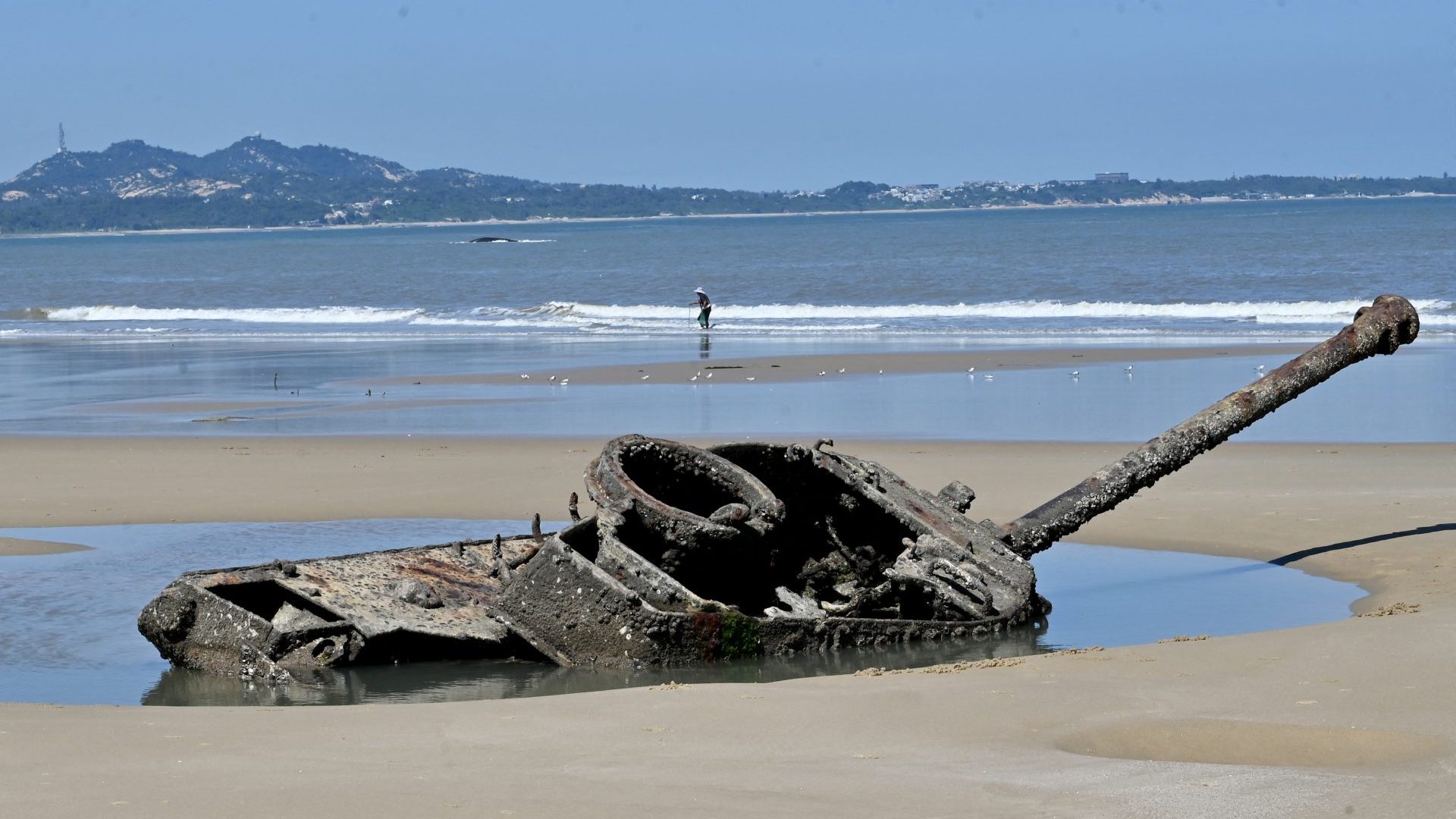Greece was never quite a normal European country. Its religion, alphabet, centuries of rule by Muslim Turks, make it unique. General de Gaulle once asked of France, “How can you rule a country that produces 250 types of cheese?” Greece has 227 islands, each with its own politics, leaders and identity, where ties of birth, family and clan are more important than national party membership.
Modern Greek politics emerged in the aftermath of the second world war, when Churchill tried to reimpose an unwanted monarchy and keep Greece ruled by a tiny elite. This led to a communist attempt at a takeover, supported by Stalin, but it was suppressed by Clement Attlee and Harry S Truman. A junta of colonels took over in 1967, and their authoritarian rule kept Greece isolated from the social and cultural changes of the 1968 movement that liberalised much of western Europe during the 1970s.
Three great dynasties have dominated Greek politics from 1945 until today. The Karamanlis, on the right, the Papandreou dynasty on the anti-American, nationalist left, and the Mitsotakis family, a liberal, money-making clan. They have produced prime ministers, foreign ministers, mayors of Athens and other officers of the Greek state. George Papandreou was prime minister in 2011. Kyriakos Mitsotakis has been prime minister since 2019. Both of their fathers were prime minister.
The win for prime minister Mitsotakis’s centre-right New Democracy party in 2019 seemed to open a new chapter after an unhappy 15 years for Greece. It seems, however, that the new prime minister embodies some of Greece’s worst political tendencies.
When Greece joined the euro in 2001, it started to attract corrupt banks and infrastructure firms, notably from Germany. These organisations began to exert an unhealthy influence over Greek ministers and officials, who borrowed more and more in cheap euros. This flood of foreign capital coincided with a failure to reform a defunct tax system that seemed incapable of getting Greeks, especially middle-class professionals or shipowners, to pay any tax.
All sorts of vote-buying schemes continued in the regions, rural communities and across Greece’s many islands.
This era of cheap money, low tax and foreign imports created an economic boom. Parties of both the left and right tried to take credit, and to gain financially from the new, dynamic economic mood.
The financial crash of 2008-09 and the ensuing euro crisis blew these rackets to smithereens, as it became clear the Greek government’s debt position was much worse than official figures suggested. The German industrial firms and French and Italian banks insisted that their debts should be paid at precisely the moment when Greece could least afford them. Angela Merkel and her sidekick, Nicolas Sarkozy, arrived to dictate terms to the Greeks.
Their demands were brutal, and required a complete restructuring of the Greek pension system and cuts to all public sector wages and public services. The result was a crushing recession, during which unemployment rose from 7% in 2008 to 27% in 2013. Having administered her foul-tasting medicine to the Greek people, Merkel returned home to be re-elected as the saviour of German banks and businesses.
As the recession ground on, the Greek left turned away from the ruling left wing Pasok party and towards a more radical alternative, the Syriza party. Britain had Corbyn – Greece had Alexis Tsipras and Yanis Varoufakis. The difference was that Syriza’s coalition of ex-Stalinists, Trotskyists, leftist journalists and well-meaning academics actually won an election, beating the New Democracy party in 2015.
Alas, Varoufakis, the flamboyant finance minister, who became the darling of every global left wing conference, suffered from a case of extreme hubris. Through his arrogance and unwillingness to compromise he managed to alienate every other finance minister in Europe. Appointed in January 2015, things only began to improve when in August that year the Syriza leader, Alexis Tsipras, fired him.
But the Greek electorate soon found a new man to admire. Kyriakos Mitsotakis came from the liberal wing of the New Democracy party. A US-educated former management consultant in London, he was promoted by Merkel and other centre-right leaders as the new poster boy of a modernising, pro-European, centrist Greek politics.
Mitsotakis won the 2019 election, and set about doing good things, like recognising the North Macedonian government in Skopje. Greece also took in 100,000 refugees in 2021 and has resettled a further 50,000, many of them fleeing the war in Syria. There are currently around 1 million Albanians working in Greece, in low-paid jobs shunned by Greeks. It is a sharp contrast to the current, ugly attitude towards immigrants shown by Britain’s Tory party.
But in the end Mitsotakis could not stop being Greek, nor could he escape the newly fashionable government style of the right – namely that the elected chief should have close to supreme power. Parliamentary checks and balances, or democratic party interests, were nothing but a tiresome barrier to effective governance.
We have seen this tendency in Britain with Boris Johnson’s “nodding dog” cabinet and his alarmingly lax attitude to the rule of law. We have also seen it in France, with Emmanuel Macron assuming he could rule without reference to the National Assembly, until in June he suddenly lost his majority. And in Italy a technocratic banker, Mario Draghi, was hailed as a saviour, able to rule far out of reach of all those uneducated parliamentarians.
Mitsotakis was also infected by this modern liberal-rightist arrogance – but his style of government began to take on a sinister character. He created a new office for the prime minister staffed by loyalist aides overseeing each ministry’s activity. Under this new system cabinet ministers became irrelevant. Then, in a deeply troubling move, he brought the Greek intelligence agency into his office to oversee it personally. In 2019 he named his nephew as chief of staff. Disaster was imminent.
Greece is now rocked by allegations that Mitsotakis’s office sought to tap the phone of Nikos Androulakis, the leader of the second biggest opposition party, PASOK-KINAL. Androulakis, an engineer by training, has worked as a PASOK official all his life. He has been an MEP since 2014 but speaks no foreign languages and has made no impact in European politics. So why tap his phone?
The expectation is that, in next year’s election, PASOK-KINAL may form an electoral coalition with the broader left. Tsipras has de-Corbynised Syriza, now supports Ukraine against Russia, and has been accepted as part of the broad democratic reformist left network of parties across Europe. As a result, many of the centrist voters who opted for New Democracy in 2019 may look again at a new, more moderate left and like what they see.
In this way Androulakis emerged as a threat to Mitsotakis, and this political rise coincided with a decision to tap Androulakis’s phone. The spyware, called Predator and made in Israel, was discovered during a routine security check by a European parliament official. Androulakis blamed Mitsotakis for ordering the tap and accused the prime minister of taking Greece back to “the dark days of the Colonels’ dictatorship”.
Things got worse when two senior journalists who were investigating dodgy deals by the Greek government also accused Mitsotakis of tapping their phones.
Mitsotakis tried to lance the boil by firing both his nephew-cum-chief of staff and the head of his intelligence agency. The government then put out a story claiming that the leaders of Ukraine and Armenia had asked Athens to put Androulakis under surveillance. The ambassadors of both nations promptly denounced these briefings as “lies”.
Mitsotakis made a short address to the Greek government denying all knowledge of the tap. The Greek parliament will return early from its summer break to debate the issue.
The New Democracy MPs I have spoken to say it is a storm in an Athens ouzo glass. Regional, rural and island Greece, they say, aren’t interested. But no democracy can survive if the head of government and close advisers think they can bug their opponents.
Katerina Sakellaropoulou, the president of Greece and an internationally respected public lawyer, has called for a full investigation. So has George Papandreou, the former prime minister. Like Watergate, the steady drip of pressure over what is dubbed Predatorgate taps away insistently.
The European parliament takes the parliamentary privileges of its MEPs very seriously and has announced an inquiry.
The Dutch MEP Sophie in ’t Veld has called for Europol to investigate possible criminality by the Greek state. This is deeply troubling for the EU’s centre-right political federation, the European People’s party. The discrediting of a successful governing party and the fall of an attractive, competent centre-right prime minister, far more palatable than horrors like Silvio Berlusconi or Viktor Orbán, would be a huge loss.
The Greek political crisis reflects a wider loss of confidence among contemporary European political parties, many of which are in a state of disintegration. It is alarming to consider that in Greece right now, there is no real confidence either in the party of government or in any possible alternative. And there is an economic storm coming.
Denis MacShane is the UK’s former Minister of Europe. He writes on European politics and policy



